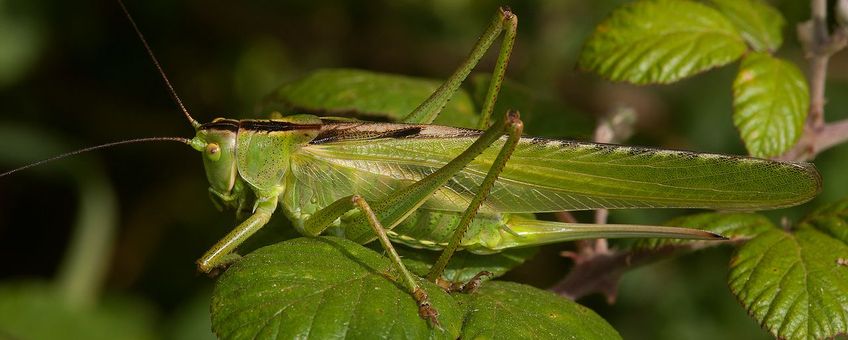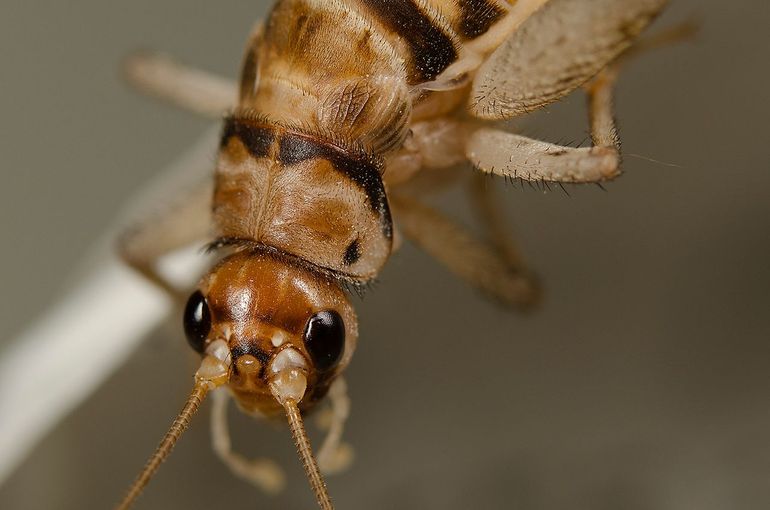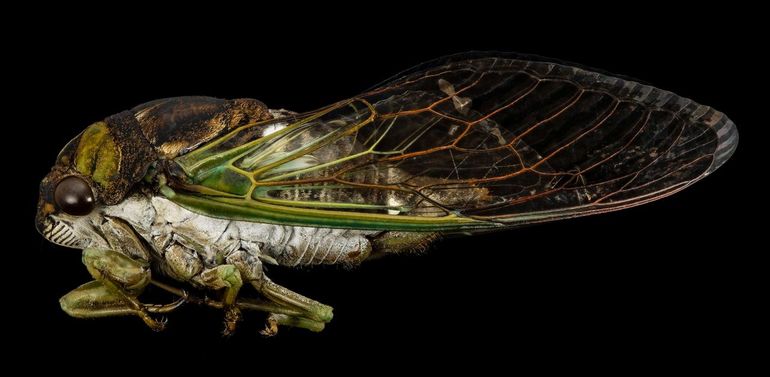
The computer and the cricket
Naturalis Biodiversity CenterIn the same way that lawyers take on pro bono cases, software company Capgemini participates in the so-called Global Data Science Challenge for a sustainable future, an internal competition to find IT solutions for real-world problems. This year a biodiversity problem was on the agenda: there are fewer and fewer insects. There are millions of insect species worldwide, accounting for an estimated 80 percent of all animals on our planet. The loss of these species could lead to the collapse of the ecosystem, which includes humans.
That decline itself, and the effectiveness of attempts to do something about it, are difficult to monitor. Insects are small, there are a great many species and telling those apart is not that easy. An artificial intelligence (AI) that can recognize species by their sounds can help with the latter. Together with traditional and camera-based monitoring, acoustic recognition will provide new insights that will enable the identification of insect species that would otherwise go unnoticed. Scientists can monitor and protect vital populations in this way, or monitor the rise of alien species like the tropical house cricket.

Essential
Elaine van Ommen Kloeke, Program Manager at Naturalis: “Protecting insects is essential for protecting biodiversity as a whole. Thanks to organizations like Capgemini and technological advancements, we can tackle this global problem and protect a group of animals that are so important to our global ecosystem. With this initiative, we want to make the technology accessible to researchers around the world to support them in identifying insects.”
For this year's Data Challenge, Capgemini teams collaborated with Naturalis, representing the Dutch national biodiversity infrastructure ARISE. In addition, they have worked with Amazon Web Services for Sagemaker, their scalable machine learning platform, to tackle the problem of acoustic insect monitoring. More than 1,500 Cap Gemini employees took part, making this the company's most popular challenge yet. The winning team developed an AI-based acoustic model that can identify different insect species, based on their sounds, with an accuracy of almost 92 percent. The best models will become available through ARISE to anyone who wants to use them.

Inspiring
Niraj Parihar, CEO of the Insights & Data Global Business Line at Capgemini: “Through our Global Data Science Challenge, we are empowering our team members to solve real-world challenges that matter to us all. Listening to and identifying insect species is essential to their conservation. It was inspiring to see how everyone worked together to apply the power of AI to preserve our natural ecosystem and protect the future of our planet.”
More information
- If you have insect sound recordings, you can help by uploading them to Xeno-Canto. You can read more about Bio-acoustics AI here on NatureToday.
- More about the Global Data Science Challenge at Capgemini.com.
- More about the ARISE project for species identification.
Text: Capgemini & Naturalis Biodiversity Center
Photos: Naturalis (lead photo: great green bush-cricket); USGS
